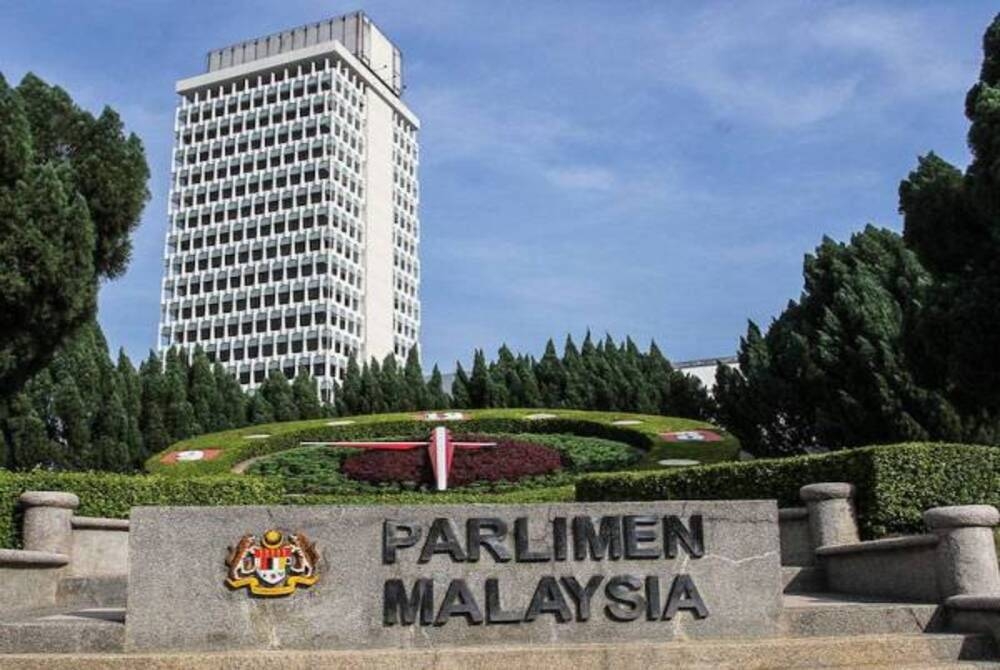Minority govt a way out of political gridlock, say observers
23 Nov 2022 03:52pm

GE15 on Saturday ended with no party obtaining a simple majority of 112 seats in the 222-seat Parliament to form the new government.
Neither were the two coalitions with the highest number of Parliamentary seats, Pakatan Harapan (PH) and Perikatan Nasional (PH), willing to work together to form a multiple-coalition government.
The ensuing political uncertainty saw Malaysian stocks and the ringgit taking a hit and the prolongation of this crisis will only have negative implications for the economy.
Some political observers think that forming a minority government is the "best way out” should efforts taken by Yang di-Pertuan Agong Al-Sultan Abdullah Ri’ayatuddin Al-Mustafa Billah Shah to resolve the political impasse come to naught.
BY HOOK OR BY CROOK
According to veteran analyst Prof Dr Ahmad Atory Hussain, a new government has to be formed fast "by hook or by crook”. He sees the formation of a minority government as a better option than having the nation administered by an interim government post-GE15.
"Even though it’s only going to be a minority government, it can at least maintain security, peace and harmony in the nation. Most importantly, the (2023) budget (which has to be re-tabled in Parliament) can be passed,” he said when contacted by Bernama.
In the Malaysian context, a minority government refers to a government formed by a coalition of political parties that was not able to secure a simple majority in the Dewan Rakyat in GE15.
Conceding the inherent weaknesses of a minority government, Ahmad Atory stressed it can still function well, particularly in terms of drawing up policies that prioritise the people’s interests.
Geostrategist and senior fellow at the Nusantara Academy for Strategic Research Prof Dr Azmi Hassan also supports the formation of a minority government which he said is the best bet considering that PH and PN are reluctant to collaborate with each other and Barisan Nasional (BN), perceived as the kingmaker, declining to work with either coalition to make way for a multi-coalition government.
"Canada, for example, has seen many minority governments. It’s currently led by a minority government too as Prime Minister Justin Trudeau’s Liberal Party doesn’t have enough representation. However, the (opposition) New Democratic Party willingly supported the establishment of a minority government to ensure the well-being of the people of Canada,” he said.
He urged BN to support either PN or PH in forming a unity government but admitted this is easier said than done due to the split among the BN members of Parliament.
"The decision now rests in BN’s hands. If its 30 Parliamentarians care about the nation’s agenda, then they should make a unanimous decision to support the formation of a minority government while staying outside the government,” he added.
EFFECTIVENESS OF A MINORITY GOVERNMENT
Asked if a minority government will be able to ease the prevailing political tension, Azmi said this can be achieved if the new government is able to administer the nation efficiently like Canada’s.
"Canada’s minority government is still ruling because its prime minister is fair to all the people. In Malaysia, too, if the prime minister and his minority government govern impartially, then even the (opposition) parties such as BN will support the minority government,” he said.
Azmi also agreed that the Confidence and Supply Agreement (CSA) is the best approach to reaching a consensus in policymaking in a minority government.
(To get the support of MPs and continue to be in office, a minority government needs to sign a CSA with one or more of the other parties.)
"The CSA is an agreement to gain the support of other parties when the minority government enacts policies. Through the CSA, MPs can support and pass policies such as the budget. They can also take a neutral stand as long as the policies are approved,” he explained.
ALLOWED IN THE CONSTITUTION
Meanwhile, lawyer Mohamed Haniff Khatri Abdulla said the Federal Constitution poses no obstacles to the formation of a minority government as long as a prime minister is appointed.
"The onus is then on the prime minister to form the government. There are no obstacles or restrictions with regard to (the formation of) majority or minority government.”
He said there are three types of minority government, the first involving the coalition with the highest number of seats in Parliament.
"PH, for example, has the highest number of seats and if other parties (or coalitions) support Datuk Seri Anwar Ibrahim’s appointment as prime minister, then they can choose to form a multiple-coalition government and Anwar can appoint MPs from those parties to his Cabinet,” he said.
The second type of minority government involves a unity government where BN, for example, can remain as the opposition bloc without joining forces with PH or PN while supporting the prime minister.
"In such a situation, the prime minister can appoint one or more opposition MPs to join the government - the opposition can either support or oppose this,” he said.
The third type of minority government can be formed through the combination of a multiple-coalition government and a unity government.
"No matter what, a minority government can be created if no coalition commands a simple majority (in Parliament),” he added.
In GE15, PH won 82 seats, PN (73), BN (30), Gabungan Parti Sarawak (GPS, 23), Gabungan Rakyat Sabah (six), Warisan (three) and independent candidates (two). Parti Bangsa Malaysia and Parti Kesejahteraan Demokratik Masyarakat won a seat each.
The Dewan Rakyat has 222 seats and to win a general election, a coalition or party has to secure at least 112 seats which is the simple majority.
GPS has reportedly said it will support efforts by PN and BN to form a multiple-coalition government while Warisan prefers a PH-BN collaboration. However, BN has decided not to side with any coalition and wants to stay as the opposition. - Bernama









